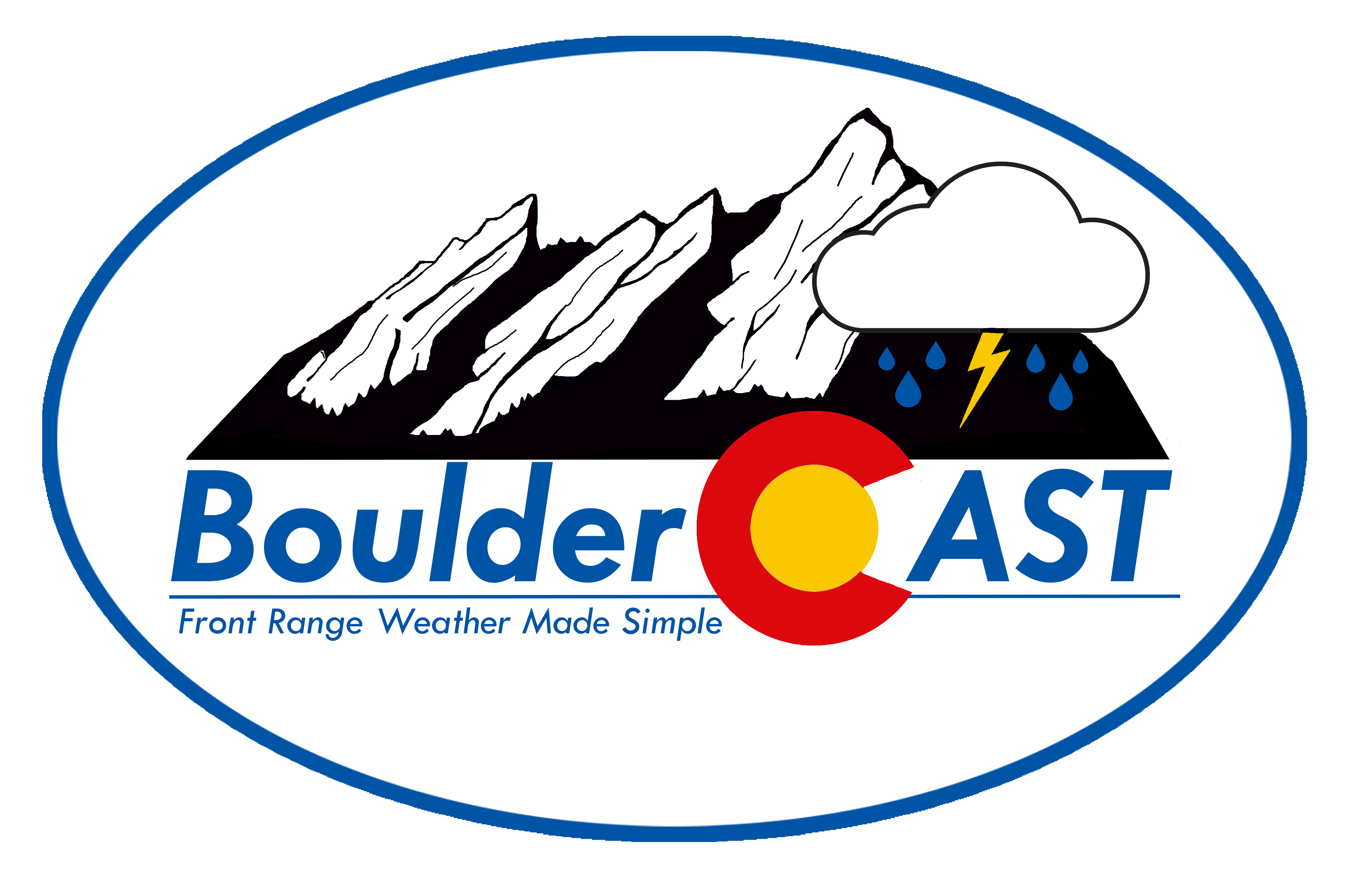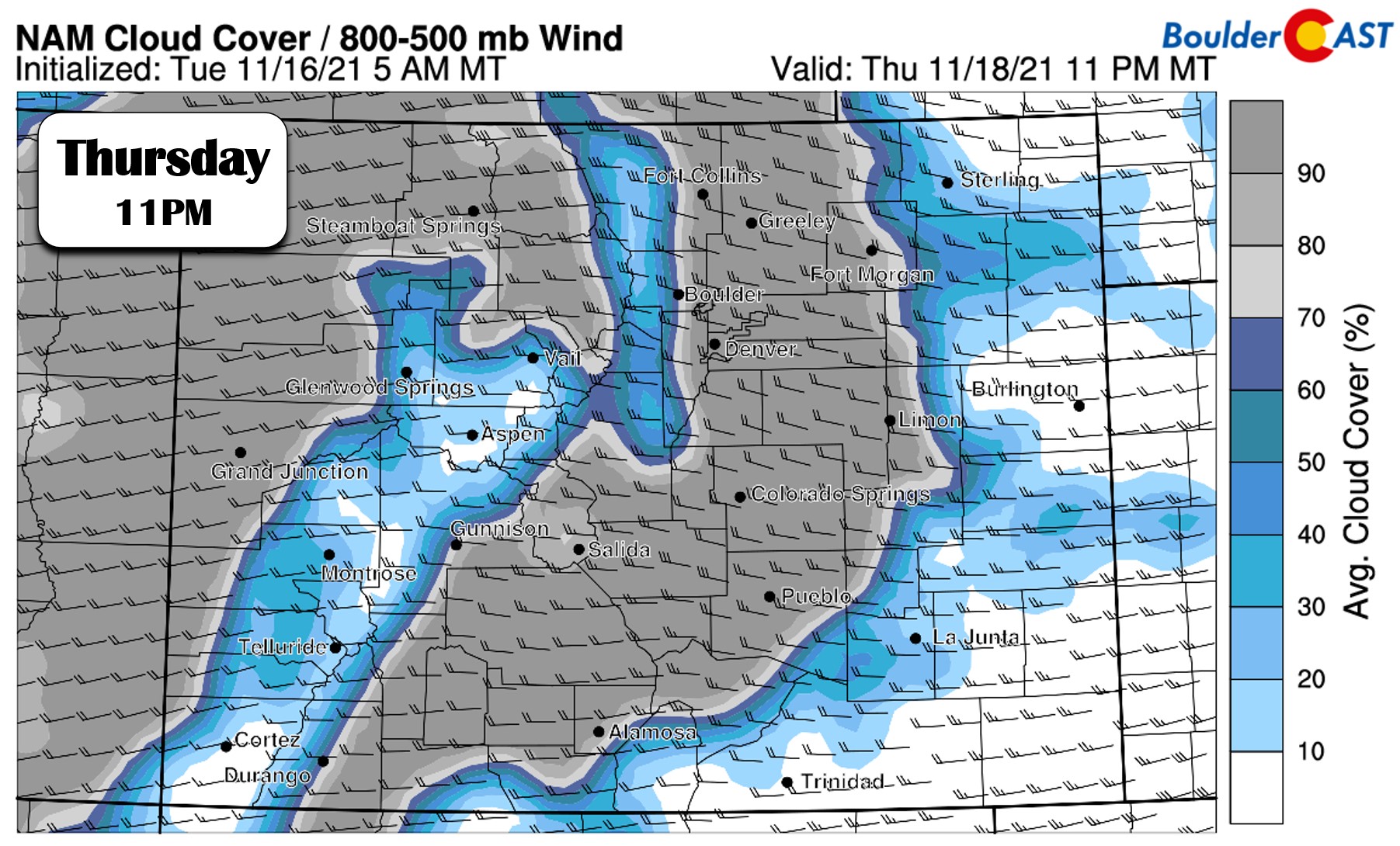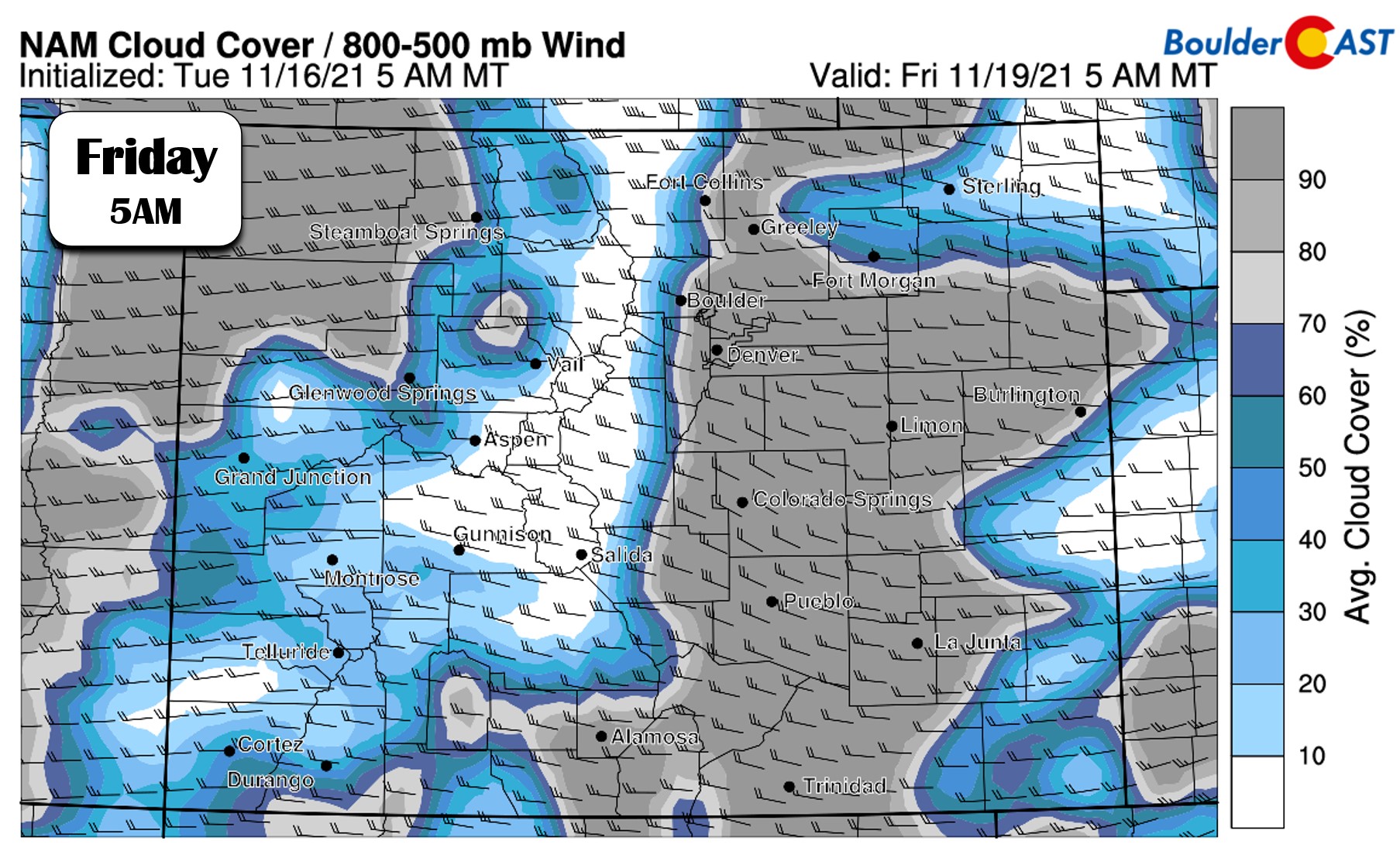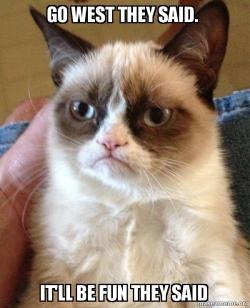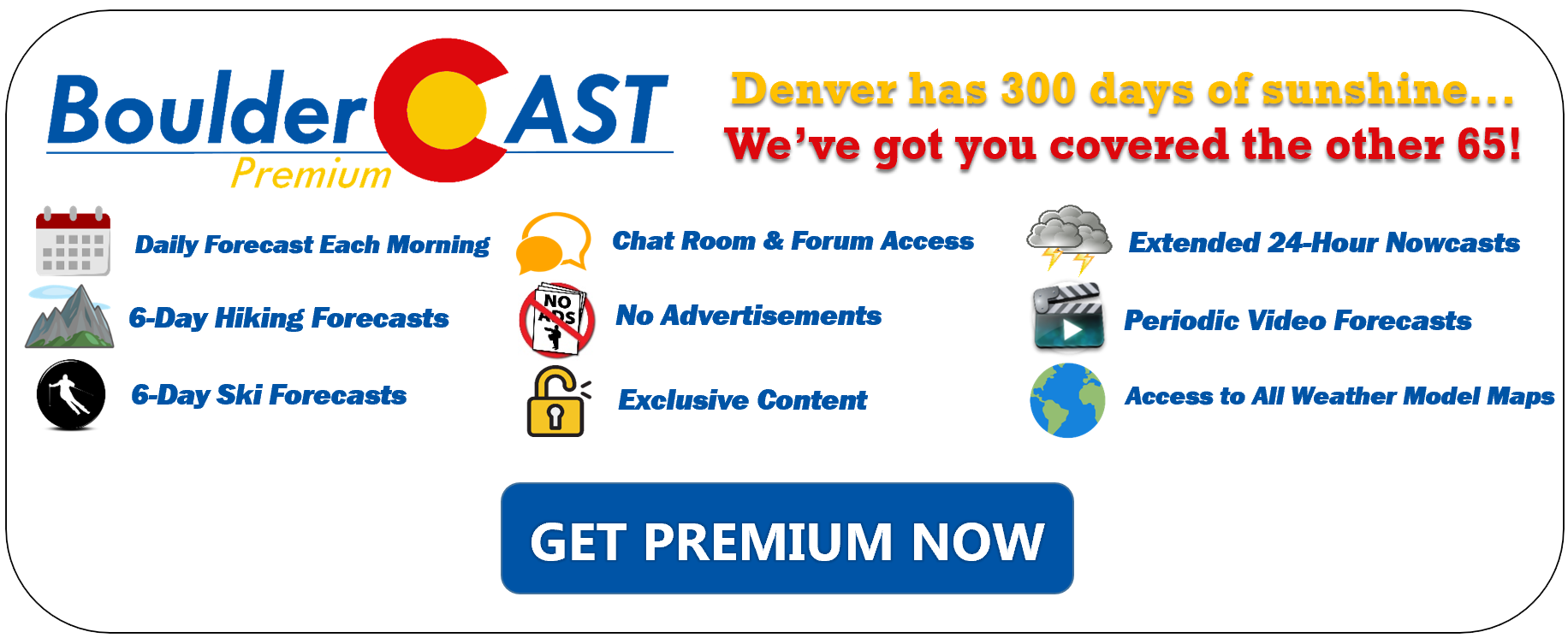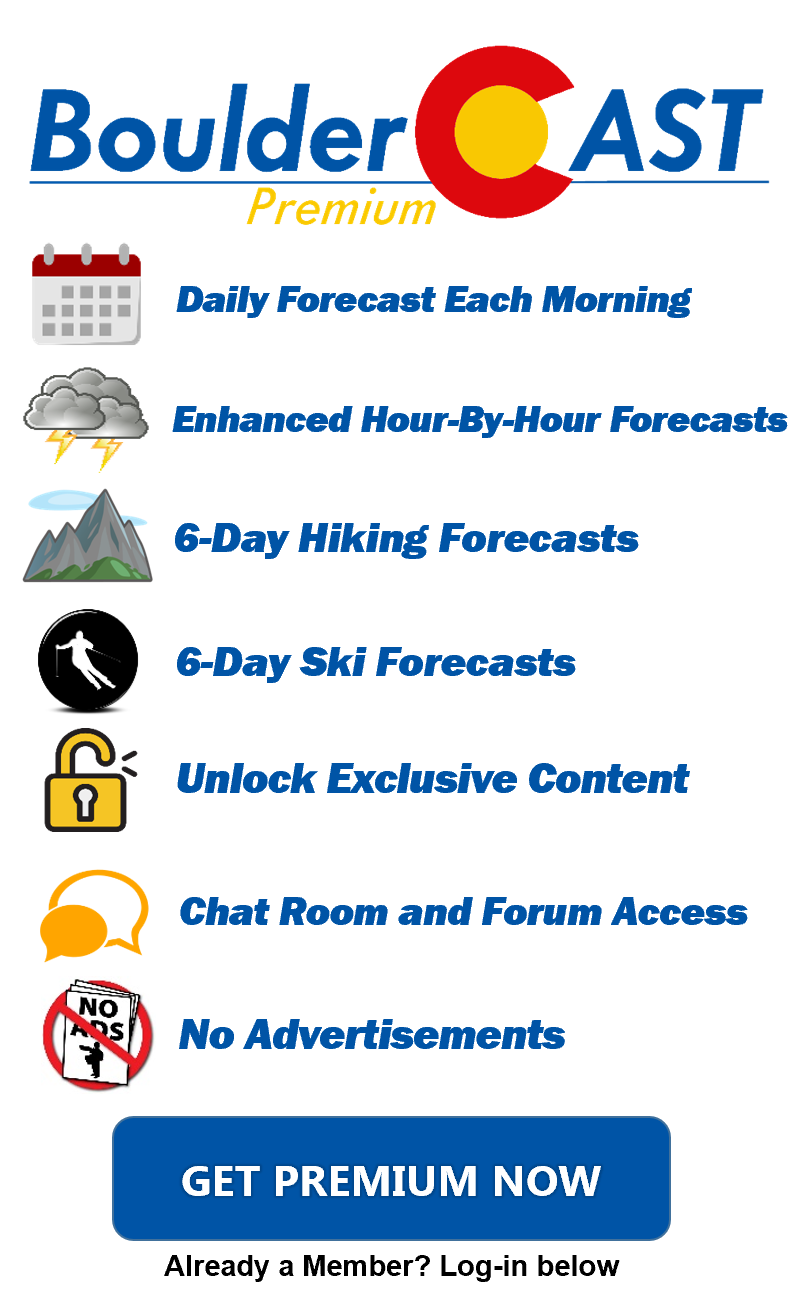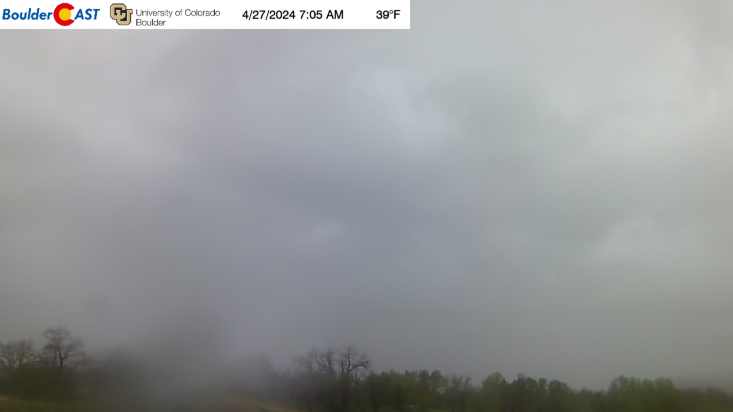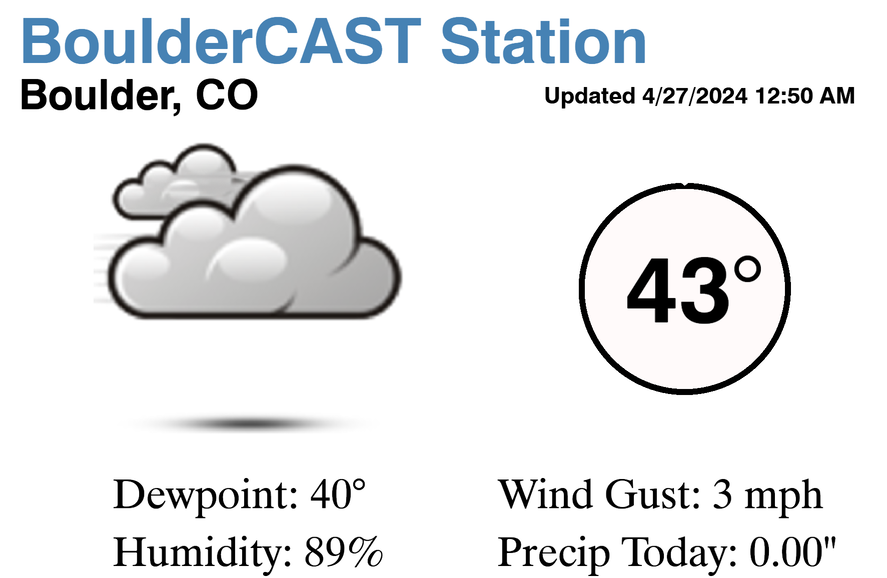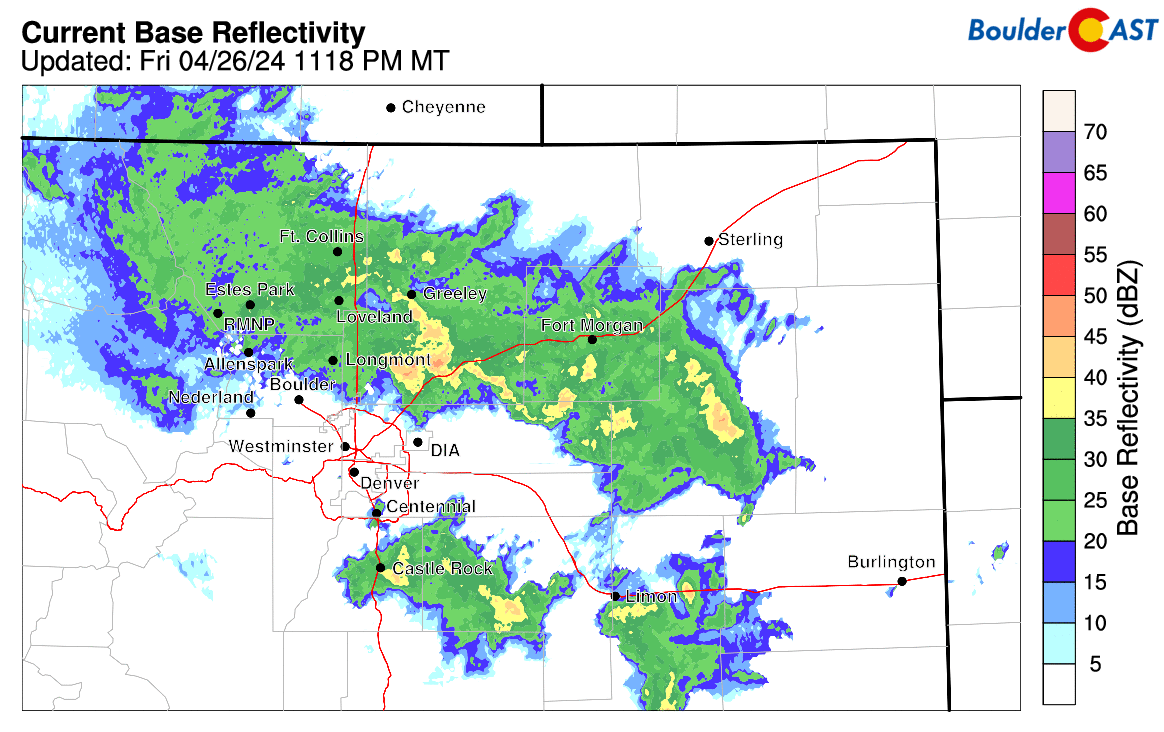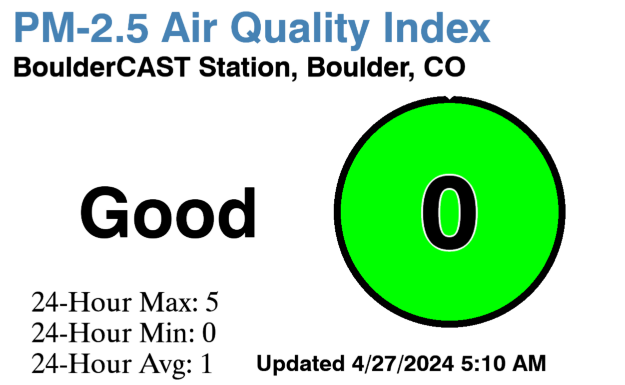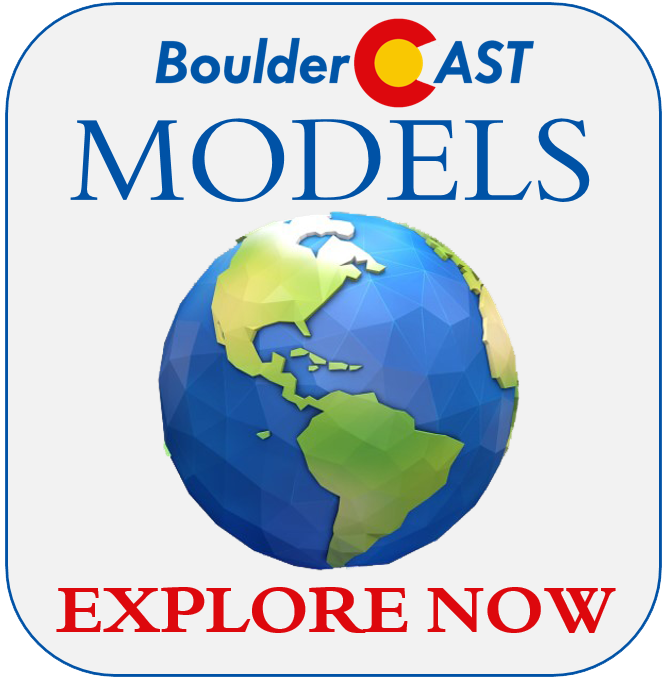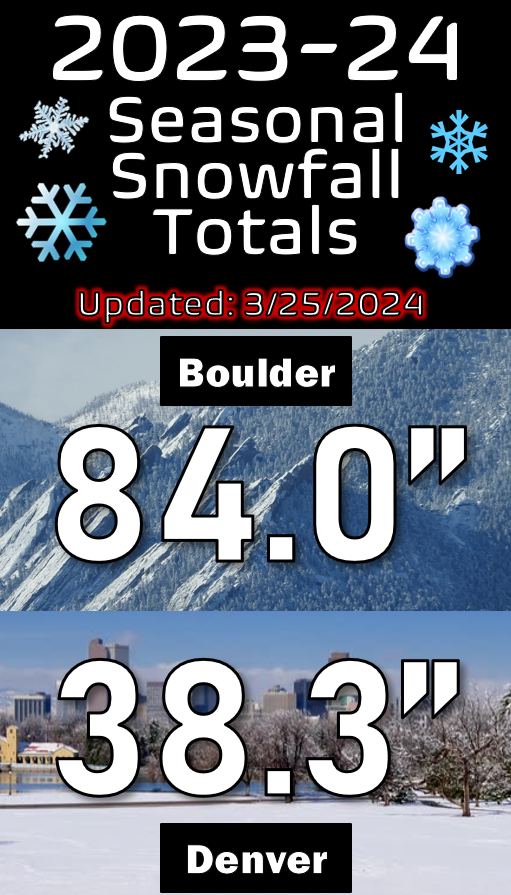A near-total lunar eclipse is set to take place late Thursday night into Friday morning when the Earth’s shadow will cast onto the full moon. But, will any of us in the Front Range be able to see it? Here’s the latest weather forecast.
UPDATE (Thu 11/18/21 11:00 AM): Our early suspicions that a big wave cloud would spoil viewing of the lunar eclipse Thursday night have been confirmed. Increasing upper-level moisture aloft will spawn a lots of wave cloud over the Front Range growing in coverage Thursday evening. These will likely at least partially obscure the sky during most of the duration of the eclipse. Heading up along and WEST of the Continental Divide will increase the chances of being out from under the wave cloud to get an unobstructed view, but it’s still not guaranteed. Alternatively, driving east to Kansas should do the trick, but does anyone really want to do that? As the moon shifts westward and lowers in the sky, it might become more visible in the Denver-Boulder area towards the tail-end of the eclipse since skies will be less cloudy or even clear in the Mountains.
Overnight temperatures will be mild in the 30’s to middle 40’s, so it’s a real shame that the clouds aren’t willing to fully cooperate!
This is being advertised as the longest duration partial lunar eclipse in roughly 580 years. However, don’t read too much into the media hype surrounding this specific eclipse! The key word here is partial. Every single total lunar eclipse would be longer than this one, and those happen every other year or so. Plus, lunar eclipses develop so slowly the duration really isn’t something anyone cares about. It’s not nearly as rapid to materialize (or as awesome) as a solar eclipse. For the lunar eclipse, a quick peek or two near the time of the maximum is generally sufficient for most folks. This is especially true considering lunar eclipses occur in the middle of the night during prime sleeping hours!
In any case, this particular lunar eclipse is set to begin around 11:02PM Mountain Standard Time Thursday evening, but won’t maximize until around 2:02AM early Friday morning when just 3% of the moon will remain illuminated. The eclipse will then wane slowly and wrap-up around 5:03AM. During the eclipse, the moon will transition from high in the southeastern sky to low in the western sky.
You already know that Thursday and Friday will be entirely dry across our area as this was discussed in our weekly outlook. However, we didn’t talk too much about the potential for cloud cover Thursday night. Despite the dry forecast, clouds can certainly spoil the hopes and dreams of many eclipse viewers!
Right now there is a patch of moisture expected to be moving across northern Colorado Thursday night. It’s a small-scale feature so the forecast this far out, especially the timing, is not certain. However, most models do show it clouding up during the overnight period. The moisture is elevated in the atmosphere, about 20k feet up or so. This setup tends to produce a big wave cloud over the Front Range Foothills and Plains, but areas west of the Divide stand a chance to be clear. It’s actually very similar to the setup we had Monday and today with blue skies over the terrain with much gloomier weather around Denver and Boulder.
There's a giant Chinook arch cloud over the Front Range right now. We've already hit 70°F, but there won't be much additional warming under this thick cloud deck #COwx pic.twitter.com/SfD88RmKbl
— BoulderCAST Weather (@BoulderCAST) November 15, 2021
Below is a look at the NAM model cloud cover forecast for 11PM Thursday night when the eclipse will be getting underway. That’s a wave cloud signature over the Front Range…
By 5:00AM Friday, things potentially look a little better for the Mountains, but that pesky wave cloud is still sitting over the Denver Metro area.
For now, we wouldn’t make any definitive plans based on this forecast. The wave cloud may end up being smaller, or thinner or the timing could shift entirely. If you’re looking for the best chance of clear skies, you just might need to head west!
Help support our team of Front Range weather bloggers by joining BoulderCAST Premium. We talk Boulder and Denver weather every single day. Sign up now to get access to our daily forecast discussions each morning, complete six-day skiing and hiking forecasts powered by machine learning, first-class access to all our Colorado-centric high-resolution weather graphics, bonus storm updates and much more! Or not, we just appreciate your readership!
Spread the word, share Colorado weather:
